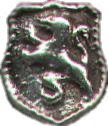...or "Why pushy parents should be taken out and shot."
Caught this on BBC 4 last night, and it was surprisingly good. Not that it shouldn't haven been, given the names attached, it's just that biographical films are not generally my bag. Still, I found it very watchable.
Starting with his radio career and his desire to break into films, the story concentrates on the self imposed tragedy of his private life. There are some up-beat moments, such as when he fools the casting director of his first film into thinking he's an eighty year old war veteran, after first being rejected for not looking the part. This first break catapulting him into stardom, which the film cleverly completely skips over in order to avoid detracting from the main story. But behind all his success, right up until her death was his pushy mother. A woman who instilled in him the idea that fame comes at the cost of your friends and family, but it's a price worth paying. This isn't to place all the blame for his problems with his mother, it's clear he's a deeply flawed individual. Geoffrey Rush plays him in an almost child like state, throwing tantrums whenever things don't go his way. But her pushy and demanding nature certainly didn't help him.
Only two of his four marriages are shown in the film, his first wife Anne and second, Britt Ekland (played wonderfully by Charlize Theron). Whether the film takes artistic licence or not, the implication is that both of these marriages broke down because of Sellers' selfish nature. The scene where he tells his two children and wife Anne that he loves them, just not as much as Sophia Loren is stomach churning, not least because his affair with Loren is all in his head.
Whenever something traumatic happens in Sellers' life, the narrative changes completely to Rush (as Sellers) stepping into the role of one of the other characters (Anne, his mother, Blake Edwards) as the world around the scene turns out to be a studio set, and shows Sellers re-editing his own life, altering their dialogue to create the happy ending he never had. It's quite evocative, rather unusual, but it strikes home because this is something that everyone has done in their own lives at some point.
Later in his life, he comes to despise the characters he has created and strikes out to do something completely different. However financial urgencies force him to do one more Pink Panther film. Ultimately when he does finally make a film that really matters to him, playing Chance the gardener in 'Being There', the film cuts to Sellers watching the movie on TV in an empty house. Having finally won the critical acclaim he always strove for, he now has no-one to share his success with.
Score: C+
Not usually my thing, but very watchable if a little sad.
OQ: You think he was harsh to me? He was. But that just means he learnt his lesson.
